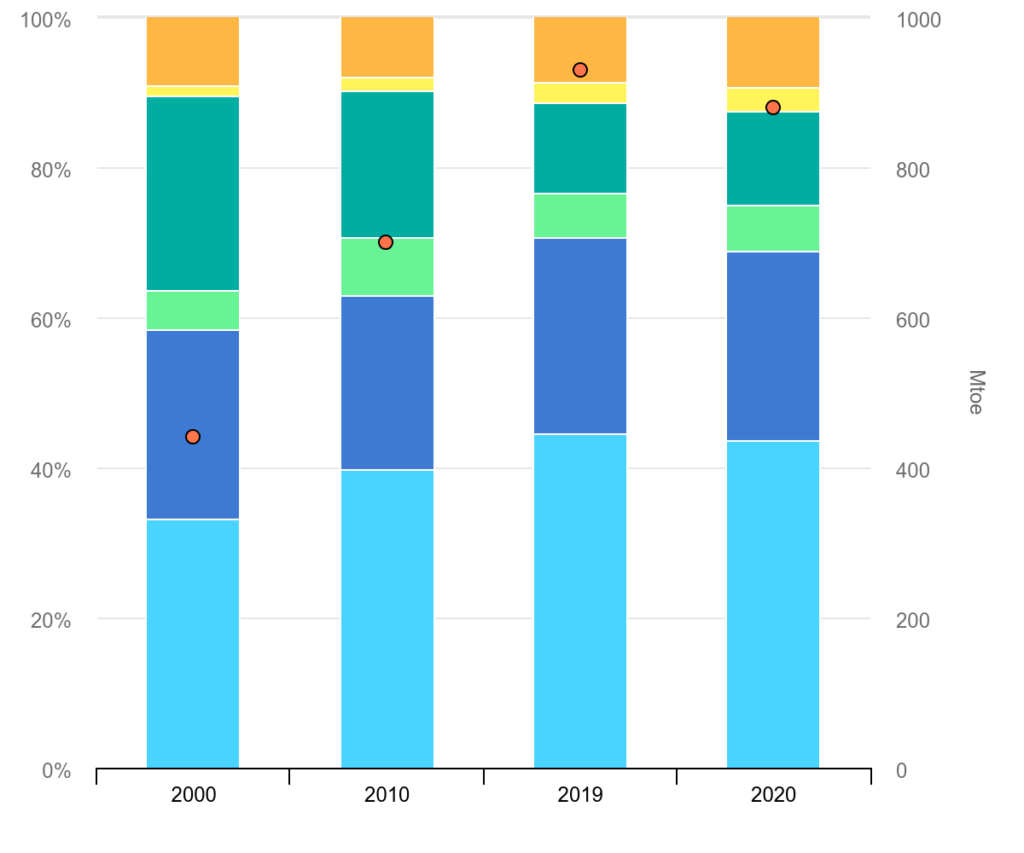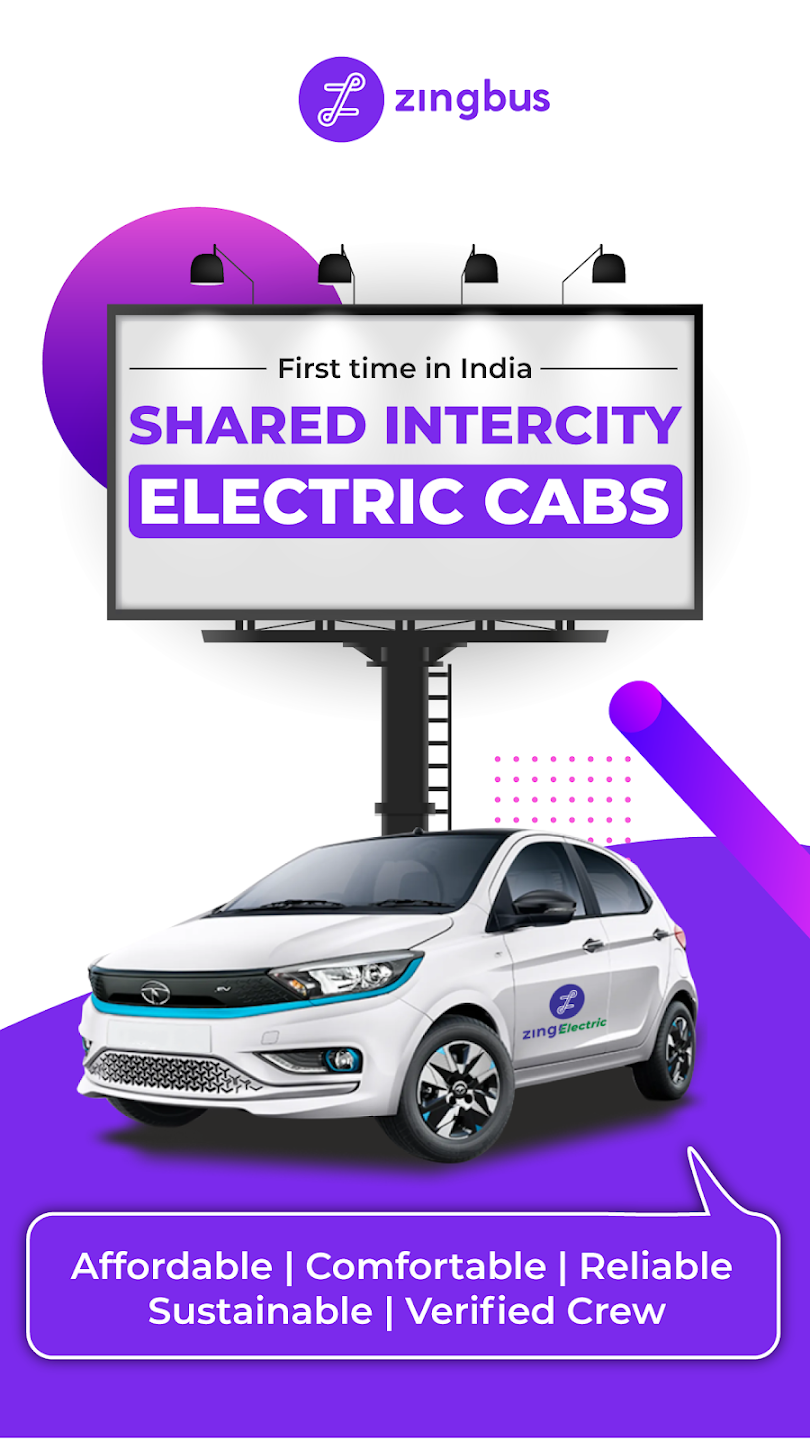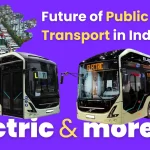
India is among the biggest consumers of fossil fuels worldwide. Since the nation has set the deadline for 2070 for reaching net-zero emissions, the EV sector forms an integral part of curbing the use of fossil fuels and generating more income for the government. With the increasing demand for electric cars, electric buses, and electric vehicles (EVs) across the country, India is at a crossroads in its drive toward sustainable energy use. In this blog, we will explore how EVs in India can potentially reduce India’s reliance on non-renewable energy resources and how they could contribute to maximizing government revenue through increased taxation, infrastructure investments, and industrial growth.
Table of Contents
The Importance of EV Adoption in India
Today, India ranks 2nd as a carbon dioxide emitter worldwide and has a large transportation sector that accounts for much of its carbon footprint. Over 70% of oil demand in India comes through imports as of 2021, putting the nation in a position vulnerable to fluctuating global prices and international conflicts. The electric cars and electric buses industry hopes for a more efficient method of not being reliant on fossil fuels and hence creating more positive contributions towards the economy.
Current Scenario of Fossil Fuel Consumption in India
India’s power consumption is a non-renewable-based source of energy. Based on IEA, energy consumption for India increased annually by over 4% between the years 2010-2020.

The country’s transportation sector alone accounts for about 15% of India’s total CO2 emissions, with more than 85% of the fuel used for that sector originating from crude oil. Shifting to electric vehicles can drastically reduce the consumption of petroleum and natural gas in the transportation sector, contributing to a reduction in carbon emissions.
Electric Cars in India: Growth and Challenges
The electric car market in India is growing steadily, with significant leaps in sales in recent years. According to SIAM data, EV sales in India registered 1.3 million units in 2022, which is almost a 10% growth compared with the previous year. The FAME-II scheme put forth by the government that comes with financial incentives for buyers of EVs in India has also become a crucial factor.
Price of Electric Car in India
Although sales have been growing, the major hurdle in the widespread acceptance of EVs is the higher electric car price compared to traditional vehicles. For example, electric cars in India may cost between ₹10 lakh and ₹50 lakh, depending on the model and brand. Cheap electric cars in India, however, include models like Tata Nexon EV and Mahindra e2o Plus, which bridge the gap in electric car price, allowing more affordable choices for customers.

The government subsidies under FAME-II decreased GST on EVs to 5% from its earlier 28%, bringing the cost of the vehicles down. The cost of electric cars in India has declined by around 15% since 2019 and continues to get cheaper. The trend is to continue because battery costs continue to decline, and the government offers incentives.
Electric Buses: A Sustainable Public Transport Option
The Indian state depends mostly on diesel buses for public transportation. However, with rising pollution levels and government policies to reduce emissions in large cities like Delhi, Mumbai and Bangalore, electric buses are increasingly being welcomed in India.
Electric Bus Price in India
The electric bus price is much higher than the conventional buses of India. The average value of an electric bus in India ranges between ₹1 crore to ₹2 crore, though it depends on the type and manufacturer. However, as a long-term benefit, their fuel and maintenance costs turn out to be much lower. EV buses can save up to 60% in their fuel and maintenance costs after 7-10 years, according to the Ministry of Heavy Industries of the Indian government.

Electric buses also contribute to cleaner air by reducing particulate matter (PM) and nitrogen oxide (NOx) emissions in urban areas. Cities like Delhi and Mumbai, which face extreme air pollution, believe that the introduction of electric buses is a crucial step toward public health improvement.
Leading Electric Bus Manufacturers in India
The leading electric bus manufacturers in India, namely, Olectra Greentech, Tata Motors, and Ashok Leyland, have propelled the market forward. The e-bus fleet of Olectra has crossed 500 units, and the electric bus price is now competitive enough that state governments do not mind adopting electric buses for public transport.
How EVs in India Can Maximize Government Revenue
The shift to EVs brings more than environmental benefits; it also offers multiple opportunities for the Indian government to enhance revenue through reforms in taxes, industrial development, and innovation in infrastructure.
`1. Reduction in Oil Imports
India’s dependence on oil imports is a major drain on the economy. In 2021, India spent about $119 billion on oil imports. By saving money from fossil fuel consumption through the widespread adoption of EVs in India, the country could save a significant amount of money that would otherwise be spent on importing crude oil. This saved money could be reinvested into renewable energy sources and EV infrastructure, promoting further growth in the EV sector.
2. Tax Revenue from the EV Industry
In view of the rise in the number of electric car buyers in India and electric bus buyers in India, several tax collection opportunities are available with the government. Even as the GST on EVs has been brought down to 5%, other heads of taxes like road tax, registration fees, and import duty on vehicle component parts would increase the amount of taxes collected by the government with a growing number of EVs in India.
3. EV Infrastructure Investments
Another potential government revenue source includes the electric vehicle charging infrastructure. To this end, the Indian government has promised to install charging stations of over 2,500 across main cities by 2025. The establishment of this infrastructure involves land acquisition and construction, as well as the offering of its services. There will, therefore, be the creation of employment opportunities and increased earnings for many people within those local areas. It might also spur the formation of public-private partnerships (PPP Models), which would harden the economy.
Industrial Development and Employment Opportunities
Industrial growth in India is being led by the growing electric vehicle market. The EV industry not only manufactures electric vehicles and batteries but also installs charging stations. It’s projected that the Indian EV sector will create more than 10 million jobs by 2030, thereby raising tax revenue through income tax and other taxes.
Environmental and Social Impact of EVs in India
India could also face significant environmental consequences related to EVs. Using EVs in India would significantly scale back the use of power generated by non-renewable sources and shift these demands towards clean, renewable forms of energy, such as wind or solar. As per estimates of NITI Aayog, electric mobility might help cut India’s imports of oil by about $60 billion by 2030 and reduce carbon dioxide emissions by one gigatonne.
EVs could also reduce local pollution-the critical concern in urban locations like Delhi, where there is often hazardous air quality. The shift to EVs can help alleviate health impacts from air pollution, including diseases of the respiratory system, making life better for millions of people.
EVs in India: Challenges to Overcome in EV Adoption
Despite the benefits, several factors limit the adoption of EVs in India on a large scale in India:
1. Charging Infrastructure
There is an insufficient number of EV charging stations. In 2023, India had around 1,800 public EV chargers compared to the 150,000 petrol stations across India. Increasing the electric vehicles charging infrastructure is important to increase consumer propensity to shift to electric cars.
2. Battery Recycling
Environmental costs related to battery production and disposal also pose a challenge. The demand for EVs in India is increasing, but raw materials such as lithium and cobalt will continue to do so. The government, along with the private players, must invest in battery recycling technologies for the sustainable growth of batteries.
3. Consumer Awareness
Many consumers are still ignorant about the long-term cost benefits of electric buses in India. Educating consumers on the total cost of ownership of electric buses and cars, as well as their environmental benefits, will be crucial in encouraging their use.
Impact of Fossil Fuel Consumption on India’s Economy
India’s economy significantly impacts fossil fuel consumption; this is mainly through high reliance on oil imports. From the Ministry of Petroleum and Natural Gas, India imported more than 212 million metric tons of crude oil in 2022-23, which would come to approximately $120 billion in costs. That, in turn, leaves India at a vulnerability to global price volatilities, hence setting to destabilize the Indian economy. For instance, as crude oil prices skyrocketed in 2022 due to geopolitical tensions, India witnessed high fiscal deficits and rising inflationary pressures.

The high consumption of non-renewable resources like coal and natural gas also has financial implications. Coal powers nearly 70% of India’s electricity generation, but its mining and transportation involve significant costs. Moreover, fossil fuels lead to increased healthcare costs in the form of diseases resulting from pollution. The World Bank estimates that air pollution costs India approximately $95 billion annually in lost labour income and healthcare costs.
Transitioning to EVs would help ease those economic burdens. By minimizing dependence on fossil fuels, the country of billions can save billions in terms of import costs and invest more in renewable energy resources and EV infrastructure to become a trillions of dollars economy in the future. This shift would not only stabilize the economy but promote energy independence, which fosters a more resilient structure for India’s future economy.
Environmental Consequences of Fossil Fuel Usage
The fossil fuel dependency of India poses severe environmental implications for the country, causing climatic changes, air pollution, and ecological degradation. Transportation constitutes nearly 15% of India’s greenhouse gas emissions, mainly from petrol and diesel. This fuels global warming, resulting in the rising levels of the sea, unstable climatic conditions, and extinction of biodiversity.
Another severe issue is air pollution. The Global Air Quality Report 2022 states that India has the 22 most polluted cities among the 30 in the world. Combustion of fossil fuels produces injurious pollutants like Sulphur Dioxide (SO₂), nitrogen oxides (NOx), and particulate matter (PM2.5) responsible for respiratory and cardiovascular diseases. According to the Energy Policy Institute at the University of Chicago, air pollution decreases the life expectancy in India by an average of 5.9 years.

Environmental impacts such as these can be managed through switching to electric cars and renewable energy sources. Zero tailpipe emissions are recorded for EVs, which significantly reduces urban air pollution levels.
Moreover, electricity coming from solar and wind for running the EVs can diminish the carbon footprint of transport sectors. Through sustainable practices, India can overcome the environmental adversities of fossil fuels toward a healthier, greener future.
Conclusion
Electric cars in India and electric buses in India are significant achievements for India’s effort to consume less fossil fuel and increase the revenue generated by the government. Right policies, subsidies, and infrastructure can turn EVs in India into a significant part of the Indian transportation system, which would not only serve the country in meeting its climate goals but also create a greener and more sustainable future for the next generations.
This will be the pivotal role of the state and central governments in utilizing incentives, policy reforms, and infrastructure investments to really maximize the benefits of an electric vehicle revolution. Continuous innovation in the Indian EV sector should lead the charge towards that cleaner, more prosperous tomorrow!






Leave a Reply